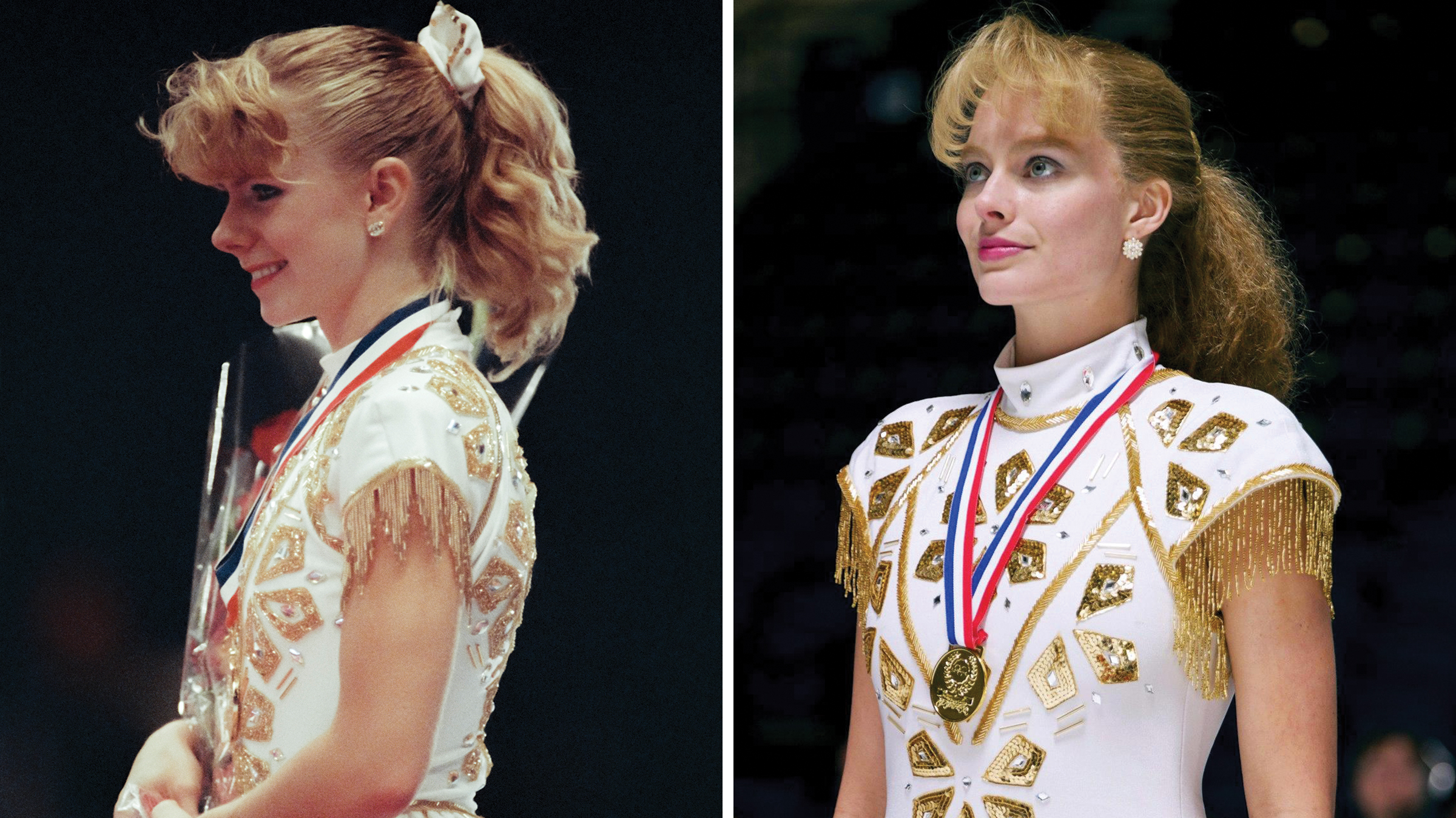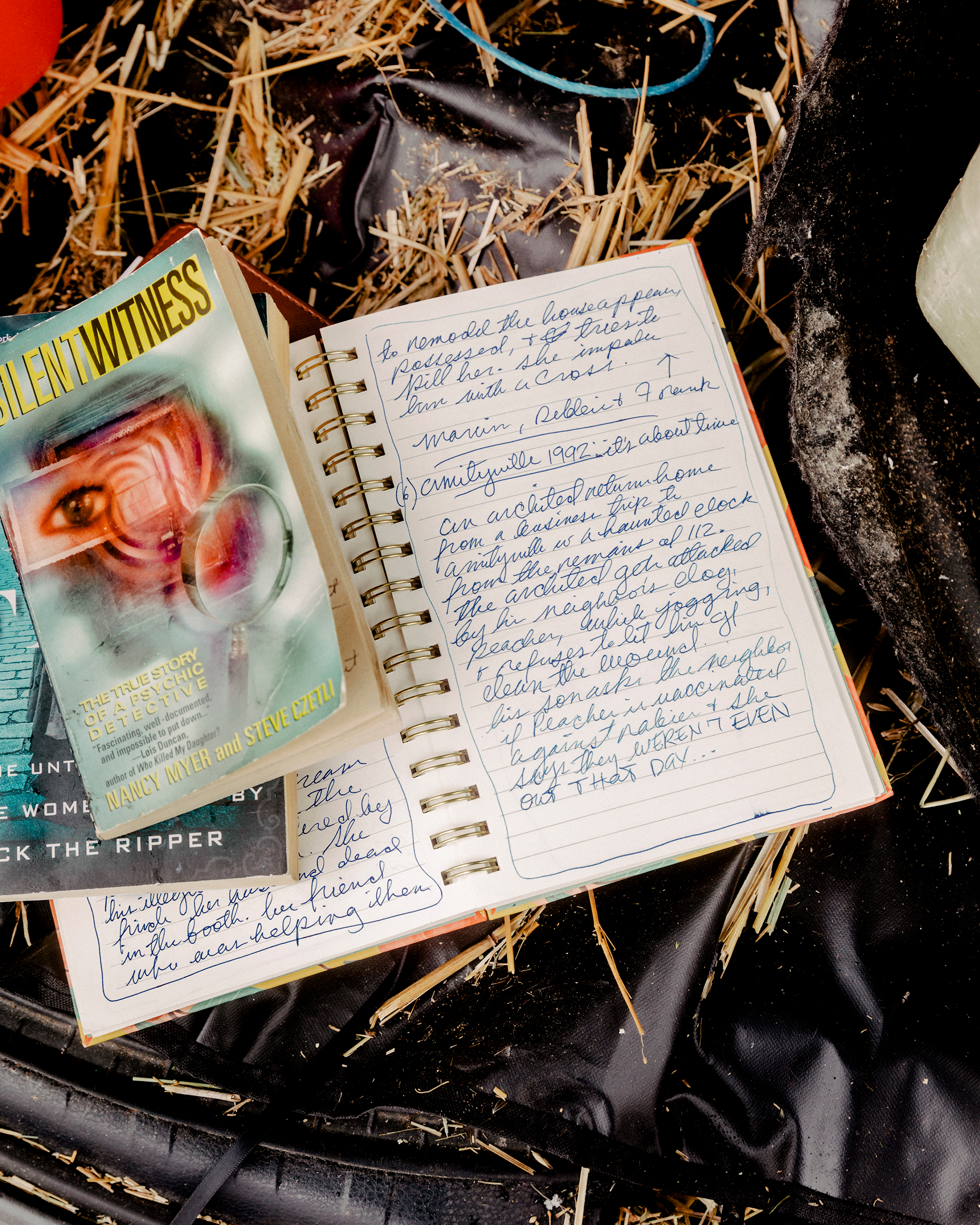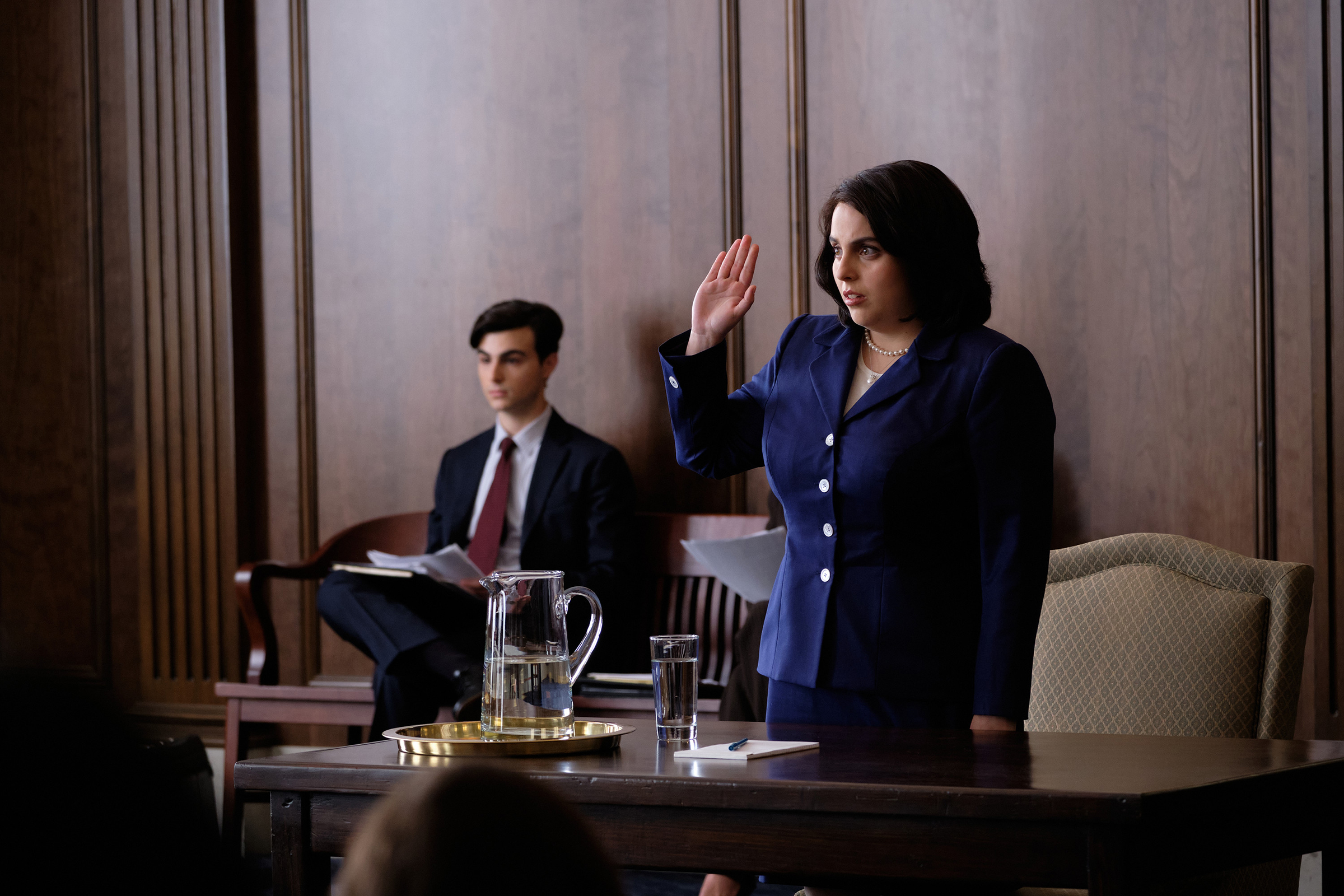Sarah Marshall fell hard for Tonya Harding. “Why do you fall in love with the people you fall in love with?” Marshall asks. “If you research people for a living, you can ask the same question about why you dedicate months or years of your life to a particular human being and trying to understand them.” These days, Marshall is best known as the host of the popular podcast You’re Wrong About, in which she sets out to debunk misremembered history. But from 2010 to 2014, Marshall was obsessively reading the tabloid coverage of the disgraced figure skater who was accused of conspiring with her ex-husband Jeff Gillooly to attack Nancy Kerrigan, her rival in the 1994 Olympics. (Harding pleaded guilty to hindering the prosecution but denied being involved in the planning.)
In 2014, Marshall collected her thoughts in a 11,000-plus-word essay for The Believer, defending a woman who would become one of her future podcast subjects. She argued that the media vilified Harding for being poor in a sport made for the rich, being a victim of abuse who didn’t leave her abuser, and being athletic at a time when skating valued grace over power. Stories always seemed to slip in the fact that Harding had divorced and then reconciled with Gillooly. “Despite the restraining order and 911 calls she placed, and despite her claims that she feared for her life,” Marshall wrote, “few phrases … were quite so gleefully suggestive as white trash lifestyle, as live-in ex-husband.”
“We can debate the extent of the foreknowledge she had,” Marshall says now. “But I think, really, we were punishing her for the crime of being trashy.”

This was before Margot Robbie starred in the sympathetic Harding biopic I, Tonya, and brought Harding as her date to the 2018 Golden Globes. While we’re inundated these days by documentaries, podcasts, and essays about women who made tabloid headlines in the ’90s and ’00s that add context to elucidate how we unfairly maligned them, Marshall was at the forefront of this trend before many people even recognized its value. “People had been talking about this for a long time, but maybe in quieter corners of the media,” says Carolyn Chernoff, a sociologist who studies gender in pop culture. “I do think that Sarah Marshall had this idea before other people really were talking about it in a mainstream way. We need to look at those stories to figure out what we’re doing wrong as a society, and do a little bit better.”
Marshall’s essay went viral among the media set. It caught the attention of Michael Hobbes, who was working at a human rights organization but would soon join the Huffington Post as a reporter, and he wrote Marshall an anonymous fan letter. Years later, he wrote to her again, attaching his name this time, to ask if she wanted to collaborate on a podcast about misunderstood history.
You’re Wrong About debuted in May 2018 and exploded in the early months of the pandemic. Though podcast downloads briefly dipped overall during that time, interest in comedy and education podcasts remained relatively stable, likely because people either sought funny distractions or—at least initially—saw quarantine as a time to better themselves, whether that meant baking bread, watching newly free Shakespeare performances online, or delving into the archives of history podcasts. You’re Wrong About happens to be both educational and hilarious. Every episode, one of the hosts would play storyteller, the other vocal listener, gasping at revelations and offering up wry commentary. Occasionally guests with deep expertise on a topic would join them as well.
The podcast functions as a history lesson, a media critique, and a meditation on the ephemeral nature of truth. “I often try to reclaim a story that the tabloids have found lucrative because they present someone who the public can safely mock,” Marshall, 33, says during a Zoom call from her home-slash-podcasting studio in Portland, Ore. “Something powerful happens when I am able to look at someone’s life and the surprising things they did and say, ‘Oh yeah, I could see how I could do that.’”
You’re Wrong About, often the No. 1 history podcast in iTunes’ rankings, now garners 3.25 million to 4 million downloads a month, and tends to sit in the top 100 podcasts overall. The show relies on tried-and-true podcasting tropes: many of the episodes deal with true crime; the show capitalizes on our obsession with nostalgia; and the colloquial nature of the conversations makes it feel more like a debate at a bar than a history lecture. On Feb. 3, it won the iHeartMedia award for Podcast of the Year, beating out massive hits like The Daily, Conan O’Brien Needs a Friend, and Crime Junkie.
Unlike most of the shows that surround it on the charts, You’re Wrong About is not produced by an established news outlet or major podcast network, even as companies like Spotify gobble up shows; according to Edison Research, it was one of only four independent podcasts in the top 50 in the third quarter of 2021. It has never even run an ad. The hosts have rejected all offers to be bought out. Instead, the show subsists on product sales, donations, and a subscription service for bonus episodes through Patreon. Among the merchandise is a sweatshirt printed with “It was capitalism all along.” Another lists several of the maligned women whom the show has asked listeners to reconsider: “Monica & Janet & Tonya & Anna Nicole.”
These days Marshall is hosting the show on her own. Despite their success, Hobbes left in October 2021, citing burnout, to concentrate on his other podcast, Maintenance Phase, on which he and a co-host debunk the junk science behind wellness fads. (Marshall also co-hosts the You Are Good podcast about movies.) At times the hosts were producing two episodes of You’re Wrong About per week, and last year, they both felt they were running out of insight.
Marshall considered departing too, but ultimately decided to stay. The pandemic had made her more cynical, she realized, and as she tries to find the voice of the show without Hobbes, she wants to get back in touch with the empathy that she has extended to everyone from Jessica Simpson to O.J. Simpson: “I need to start believing in people again.”

Like Harding, Marshall grew up in Oregon. She describes herself as a “lonely, indoor kid” who watched a lot of cable TV. Her media diet included shows like VH1’s I Love the ’90s, a series that revisited pop-culture phenomena with snark rather than rigor. The thesis, Marshall recalls, tended to boil down to “‘Look at this stupid bitch who wanted America’s media to abuse her,’ so we did.”
A voracious reader with a penchant for falling down research rabbit holes, Marshall also obsessed over everything creepy and crime-related, particularly scary stories that centered on women, from Rosemary’s Baby to true-crime TV shows. She still occasionally falls asleep to a TV narrator describing how the victim of the week was murdered, though she now has a complicated relationship with the often-exploitative genre.
As a graduate student in creative writing at Portland State University, Marshall began to study women’s captivity narratives in colonial America. She theorized that myths of young girls being possessed by demons were a manifestation of early panic about the increasing independence of women. She began to realize how the cultural and political forces of any era help shape these narratives in newspapers and novels. After graduation, she spent years pitching essays like the one about Harding, but with limited success. One on Anna Nicole Smith earned some attention, but she had trouble convincing editors that these stories needed to be told. “I’d be like, ‘Let’s revisit Amy Fisher,’ and an editor would be like, ‘Why?’”
Hobbes’ podcast conceit offered an outlet for those stories. The two would comb through publicly available documents like court records, biographies, and contemporaneous news coverage for the facts. And nothing pleased Marshall more than ordering pulpy true-crime books from eBay for episodes on the Satanic Panic or Nancy Grace. The co-hosts called into question the familiar stories of Kitty Genovese, a woman who was supposedly stabbed while 37 impassive New Yorkers looked on. (In fact, bystanders did call the police, and one risked her own life to rush to Genovese and cradle her head in her lap as she died.) And Jessica Hahn, who supposedly brought down an evangelist empire when she had an “affair” with Jim Bakker. (Hahn has said for years that Bakker and one of his colleagues raped her; they said the encounter was consensual.) And Marie Antoinette, who supposedly said of starving peasants, “Let them eat cake.” (Nope.)
Marshall and Hobbes’ goal was not to unearth some hidden fact but to refocus the narrative on a particular person or issue. The multipart series on the 2002 D.C. snipers, for instance, made the case that while reporters at the time framed the story around terrorism, it was actually a tale of domestic abuse. The older of the two shooters, John Allen Muhammad, had emotionally manipulated, starved, and threatened his ex-wife Mildred Muhammad. He even kidnapped their children. Hobbes and Marshall argue on that evidence that John Allen’s real objective was to harm his ex-wife and her friends; he only orchestrated the murder of strangers to obscure his intention to target people he knew. The podcast spent an entire episode on Mildred’s journey to become an advocate for battered women.
But You’re Wrong About doesn’t just shine a light on victims and their untold stories. Marshall has also spent hours examining history’s villains with empathy so radical that a listener might wonder whether a subject is worthy of her understanding. She has recorded more episodes on the O.J. Simpson trial than on any other subject, and you can hear her exploring whether her seemingly limitless empathy does indeed have a limit: Is Simpson—who was acquitted of the murders of Nicole Brown Simpson and Ron Goldman but later wrote a book disturbingly titled If I Did It: Confessions of the Killer—telling some delusional version of his truth? Or is he a monster who defies comprehension? “I probably err a little bit too far on the side of being credulous and wanting to believe that people are at least trying to tell the truth—or their truth,” she says.
Marshall may have been ahead of the curve with her Harding essay, but by the time You’re Wrong About debuted, the country was in the midst of a major reckoning with sexism. In early 2017, after Donald Trump’s victory over Hillary Clinton, 4.6 million protesters across the U.S. turned out for the Women’s March. #MeToo would go viral later that year. From 2016 to 2018, an HBO film on Anita Hill titled Confirmation, a Slate podcast called Slow Burn on Bill Clinton and Monica Lewinsky, and a Ryan Murphy series on the O.J. Simpson trial that focused heavily on the media’s criticism of prosecutor Marcia Clark flooded the airwaves.
Throughout the ’90s, the media pummeled women for the crime of being famous. We focused on their clothes, their hair, or the details of their sex lives, rather than the pain they endured, the power the men in their lives abused, or the work they were trying to do. While not every episode of You’re Wrong About deals with sexism, it’s a pervasive theme. “When we started the show,” Marshall says, “I was really eager to share this observation I had that the American media blame women for whatever happens near them.”
Read More: The Top 10 Podcasts of 2021
The churn of reclaimed women’s narratives has only intensified in the last year. Beanie Feldstein played Lewinsky in another Ryan Murphy show Impeachment, co-produced by Lewinsky herself. Both Emma Corrin and Kristen Stewart ventured inside the psyche of Princess Diana in The Crown and Spencer, respectively, each earning an Emmy or Oscar nod; Elizabeth Debicki will do the same later this year in another season of The Crown. Three high-profile Britney Spears documentaries shed light on the pop star’s infamous “breakdown” and tacitly advocated for Spears to be released from her conservatorship. This year we’ve already gotten commiserative retellings of Pamela Anderson’s sex-tape scandal in Pam & Tommy, Janet Jackson’s Super Bowl performance in the documentary Janet Jackson, and the jailing of scammer Anna “Delvey” Sorokin in Shonda Rhimes’ Inventing Anna.

When Jessica Chastain was preparing to produce and star in last year’s The Eyes of Tammy Faye, she sent around the You’re Wrong About episode on evangelist Tammy Faye Bakker (now Tammy Faye Messner) to everyone working on that film. Marshall recently rereleased that episode with a new intro featuring an interview with Chastain, who has since earned an Oscar nomination for the role. The actor praised the work Marshall did to rehab Messner’s image.
“We’re in the middle of this societal reckoning with history … especially around issues of gender and race and sexuality,” Hobbes told Marshall on his last episode. “And I think your work has been a really big part of sparking that. When you wrote that Tonya Harding piece, when you wrote your Anna Nicole piece, the kinds of things that you were doing, at the time, nobody was doing them.”
Today, Marshall admits that recording episodes without a partner can be daunting. “I feel like there are ways I could go that I haven’t even thought of yet,” she says. She wants the show to remain a conversation in which one person explains to another something they have researched or are passionate about. But she and Hobbes spent years getting into a rhythm with each other before the show hit it big, and now she has to find that energy with new people each week—though she hopes some guests will become regulars.
Marshall also struggles to reconcile the excitement she feels about the show’s rapid growth during the pandemic with the exhaustion of living and working through it. “It’s a stressful time, and it stresses me out to consistently have to have something meaningful to say to so many listeners,” she says. Instead she’s trying to focus on the joyful aspects of the show. “I prefer to think of myself as an entertainer. I do think I can be funny on a routine basis.”
Fortunately for Marshall, her jokes tend to telegraph profound lessons—and reminders to persevere. To quote one particularly apt T-shirt sold on the You’re Wrong About site: “If Marcia Clark could get through 1995, then I can get through this day.”
More Must-Reads From TIME
- The 100 Most Influential People of 2024
- The Revolution of Yulia Navalnaya
- 6 Compliments That Land Every Time
- Stop Looking for Your Forever Home
- If You're Dating Right Now , You're Brave: Column
- The AI That Could Heal a Divided Internet
- Fallout Is a Brilliant Model for the Future of Video Game Adaptations
- Want Weekly Recs on What to Watch, Read, and More? Sign Up for Worth Your Time
Write to Eliana Dockterman at eliana.dockterman@time.com
